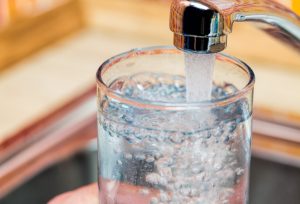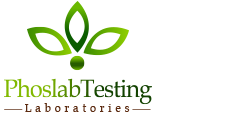 Next to oxygen, water is perhaps the most crucial component for human survival. This is why clean drinking water is so important. Microbes lingering in water can lead to illness and disease, which can be fatal in extreme instances. Find out what you can do to ensure potable water remains safe for ingestion. The methods we describe below mitigate water pollution not just for your household but for the community at large.
Next to oxygen, water is perhaps the most crucial component for human survival. This is why clean drinking water is so important. Microbes lingering in water can lead to illness and disease, which can be fatal in extreme instances. Find out what you can do to ensure potable water remains safe for ingestion. The methods we describe below mitigate water pollution not just for your household but for the community at large.
1. Modify Outdoor Surfaces
Central Florida is no stranger to rainstorms. This results in massive water runoff, much of which will turn into contaminated blackwater as it collects dirt and debris. The contaminated water eventually reaches storm drains where it enters the water supply.
You can lessen this effect on your own property by adding more gravel and other porous material on your lawn. This way, the surface absorbs much of the water the same way a septic system’s drain field absorbs waste water.
2. Pick Up After Your Dog’s Waste
It’s the courteous thing to do to remove your dog’s poo after it does a number two in the park. How is this relevant? Canine feces are laden with harmful bacteria and microbes. Entire pieces of feces or remnants can make their way into drains during heavy rain. Please be a responsible pet owner and place dog waste inside plastic bags before disposing them in the trash.
3. Be Mindful of Car Maintenance
Be especially vigilant of leaks in your car. This can affect operability and road safety. It can also have an indirect effect on water cleanliness. Car fluids like motor oil and coolant can mix with rainwater or seep into the groundwater. Always take your car to the shop the minute you spot fluid on your driveway or garage.
In addition, consider opting for a professional carwash rather than a DIY wash. Pro car wash businesses are required by state law to install sewer systems that ensure the water don’t enter nearby drainages.
4. Do Not Dispose Items Down the Toilet
Never treat the drains as a waste disposal. This especially goes for the toilet. With the exception of toilet paper, you should never discard manmade objects down the loo. Items like baby wipes, cotton swabs, and tampons that go into the toilet end up in the water and often on the shoreline. These items often come into contact with human orifices, which means you don’t want them anywhere near any water sources that the public relies on.
5. Filter the Water
Florida isn’t particularly known for hard water deposits, though several households have certainly reported hard water coming out the tap. Investing in an inexpensive filter can remove harmful contaminants, such as heavy metals, chlorine, and other sediments. If you have a fridge with an ice-maker, do the same by adding a fridge filter. Many people are unaware that such a thing exists for this essential appliance.
Inspect Your Water
For companies that manage water supplies, we recommend a Florida drinking water sampling. Wastewater testing services like Phoslab will test a sample to identify potential contaminants like pesticides and heavy metals. Let us determine whether your water is safe for public consumption.
